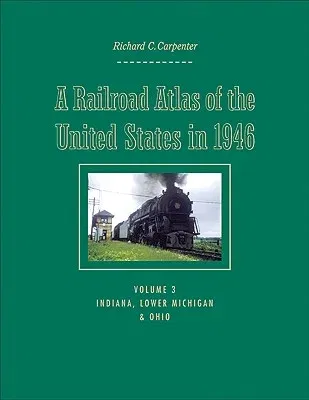Richard C Carpenter
(Author)A Railroad Atlas of the United States in 1946: Volume 3: Indiana, Lower Michigan, and OhioHardcover, 1 December 2008

Qty
1
Turbo
Ships in 2 - 3 days
In Stock
Free Delivery
Cash on Delivery
15 Days
Free Returns
Secure Checkout

Reading Age
Ages: 18
Grade Levels
13
Part of Series
Creating the North American Landscape
Part of Series
Creating the North American Landscape (Hardcover)
Print Length
360 pages
Language
English
Publisher
Johns Hopkins University Press
Date Published
1 Dec 2008
ISBN-10
0801890020
ISBN-13
9780801890024
Description
Product Details
Audience:
Ages: 18
Author:
Book Format:
Hardcover
Country of Origin:
US
Date Published:
1 December 2008
Dimensions:
28.65 x
22.4 x
3.28 cm
Educational Level:
Grade Levels: 13
ISBN-10:
0801890020
ISBN-13:
9780801890024
Language:
English
Location:
Baltimore
Pages:
360
Publisher:
Weight:
1596.64 gm